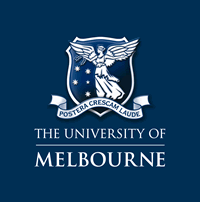Dr David Garrett
Applications accepted all year round
About the Project
Overview:
Electronic implants to treat a variety of conditions are at the fore front of medical technology. Building on the success of the cochlear implant (developed in Melbourne Australia) and recent successes in building electronic devices to treat blindness (Bionic Vision Australia) we currently have three PhD vacancies available to capable students in the area of neuromodulation medical implants.
Project:
This project involves fabrication and testing of high density electrode arrays for recording electrical signals from neural tissue or stimulation of nerves. Such arrays have application in a wide variety of neural modulation implants. The successful candidate will generate hybrid diamond / graphene electrode arrays and demonstrate that these arrays can successfully interface with living neural tissue. The successful candidate will be required to design and fabricate devices from raw materials and will conduct a suite of electrical, mechanical and material characterisations. The candidate will work across several institutes and will have access to in vitro and in vivo electrophysiology experimental techniques in order to evaluate the efficacy of the created devices. The project will provide comprehensive training in device design, microfabrication techniques, electrochemical testing of electrodes and electrophysiological techniques. The graduate will be ideally positioned for future employment in the booming biomedical device industry.
Environment, Pre-requisites and Contacts: The University of Melbourne is ranked number 1 in Australia and number 33 in the world by the Times Higher Education World University Rankings. The university is located centrally in Melbourne, which has been ranked the most liveable city in the world for four consecutive years (2011, 2012, 2013, 2014).
You should have a strong masters or first-class Honours degree or international equivalent in an engineering or physical sciences discipline in a related subject area. You should have an interest in learning more about electrophysiology, materials science and the development of biomedical devices.
Funding Notes
The University of Melbourne offers a number of higher degree scholarships to strong candidates. Preference will be given to candidates who are successful in attracting a scholarship. External funding of students who are unsuccessful in attracting a scholarship may be possible under certain circumstances.

 Continue with Facebook
Continue with Facebook

